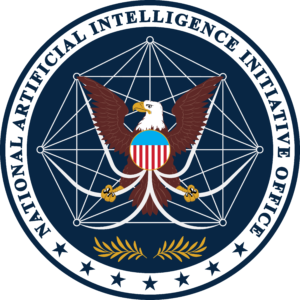Honing In on AI, U.S. Launches National Artificial Intelligence Initiative Office

To drive American leadership in the field of AI into the future, the National Artificial Intelligence Initiative Office has been launched by the White House Office of Science and Technology Policy (OSTP).
The new agency was established under the American Artificial Intelligence Initiative Act of 2020, which was enacted and codified into law to expand many existing AI policies and initiatives throughout the federal government.
The nascent National Artificial Intelligence Initiative Office is charged with overseeing and implementing America’s national AI strategy, according to a statement by the White House. It will work to provide federal coordination and collaboration in AI research and policymaking across the government, as well as with private sector, academia and other stakeholders.
“The National Artificial Intelligence Initiative Office will be integral to the federal government’s AI efforts for many years to come, serving as a central hub for national AI research and policy for the entire U.S. innovation ecosystem,” Michael Kratsios, the nation’s chief technology officer, said in a statement to The Hill. Kratsios is the nation’s fourth CTO since the office was created in 2009 under President Barack Obama.
The American Artificial Intelligence Initiative, which was established in February 2019, identified five central goals for the nation’s AI direction, including increasing AI research investment, releasing federal AI computing and data resources, setting AI technical standards, building America’s AI workforce and engaging with international allies.
In addition, the Select Committee on Artificial Intelligence, which was launched by the White House in 2018 to coordinate Federal AI efforts, is being expanded and made permanent, according to the White House. The committee will serve as the senior interagency body responsible for overseeing the National AI Initiative.
Important related efforts in the nation’s AI strategy were unveiled last August and September when a series of national AI research institutes were announced by the National Science Foundation.
In August of 2020, five new NSF AI institutes were created at a cost of $100 million to expand AI to a broader range of businesses across the U.S. economy. The initiatives aim to deepen the NSF’s artificial intelligence research to expand the nation’s workforce and drive new possibilities for a wide range of businesses, educational institutions, medicine, banking and other organizations.
Those AI institutes included the NSF AI Institute for Research on Trustworthy AI in Weather, Climate, and Coastal Oceanography, led by a team at the University of Oklahoma; the NSF AI Institute for Foundations of Machine Learning, led by a team at the University of Texas; the NSF AI Institute for Student-AI Teaming, led by a team at the University of Colorado; the NSF AI Institute for Molecular Discovery, Synthetic Strategy, and Manufacturing (or the NSF Molecule Maker Lab), led by a team at the University of Illinois; and the NSF AI Institute for Artificial Intelligence and Fundamental Interactions, led by a team at the Massachusetts Institute of Technology.
Two related AI research institutes are also being created by the U.S. Department of Agriculture over the next five years using $40 million in funding to expand AI research in farming and food processing. They are the USDA-NIFA AI Institute for Next Generation Food Systems, led by a team at the University of California; and the USDA-NIFA AI Institute for Future Agricultural Resilience, Management, and Sustainability at the University of Illinois.
In September, eight additional NSF AI institutes were unveiled in partnership with Amazon, Google, Intel and Accenture. Those companies are contributing toward a $160 million partnership to fund the eight AI Research Institutes scheduled for creation in late 2021 by the National Science Foundation. This effort marked the first time in which direct industry funding for the AI institutes will be received by the NSF, which funded prior AI institutes on its own or with other governmental partners. Companies have participated in the NSF AI research institutes in the past with researchers, materials, content and more, but previously did not make direct monetary contributions.










